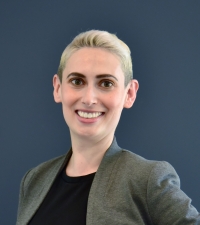The part of the Act that most people are aware of is the provision that allows a voluntary agreement for continuing contact with biological parents. Such agreements are considered open adoptions. Many parents interested in adoption are concerned by the idea of continuing contact with the child’s biological parents, for a number of reasons. Will that interfere with the parent/child bond between the adoptee and the adoptive parents? Will the biological parent(s) want to see the child too often? Won’t this agreement become more like a custody situation where a child is going between two homes? Those are common questions, and all of them are understandable, but as any experienced practitioner will confirm, there are a number of safeguards in place to protect and empower the adoptive parent(s). The court’s role is to assure that the agreed upon contact under any open adoption is limited, appropriate, and does not interfere with the parental bond between the adoptive parent(s) and the child.
First, and most importantly, a voluntary agreement for continuing contact is optional, not mandatory, and the adoptive parent(s) have the final say as to any terms of the agreement. Therefore, parents interested in adoption should not terminate the process simply upon learning of the possibility of continuing contact, as they are not required to agree to the requested access if they are not comfortable with the level of contact.
Second, any agreement for continuing contact must be approved by the court. A court will not approve an agreement which provides for significant contact, similar to a custody order. The fact is that adoptive parents are the parents. The court will always take the position that any visitation granted to the biological parents cannot interfere with that relationship. Adoptive parents should be aware that the court will not grant a biological parent unlimited access to the adopted child, nor will a biological parent be allowed to have the child at his/her house every other weekend, as if there a custody order were in place. Adoptive parents should rest assured that a voluntary agreement for continuing contact is very different from a custody order.
Finally, in reaching an agreement for continuing contact, an evaluation must be made as to what type of contact/communication is in the best interest of the adoptee, as well as what is appropriate given the parties’ roles in the child’s life. Again, regular contact that creates confusion as to the roles of the biological parent and adoptive parents is not in the best interest of the child and, as result, would not be approved by the court. Consistent regular contact is generally not considered appropriate, as the biological parents are not the actual parents. Any agreement for voluntary contact must be one where there are appropriate boundaries in place. The agreement must also recognize the parties’ interests and desires for ongoing communication/contact. What that means is that the agreement must reflect the amount of contact that the parties’ actually want. The biological parent cannot dictate the terms of the agreement and ask to speak with the child every day, or even necessarily every week or month. The adoptive parents have the final say on the level of contact they are comfortable with and must agree to any contact that is requested.
As an illustration from my own practice, I represented an adoptive couple who agreed to an open adoption which they defined as strictly as an agreement that they send photos of the child to the biological parents once or twice a year. In another case, an adoptive couple has agreed to travel to see the biological parents once a year. The agreement is whatever the parties are comfortable with, but it is important to know that the adoptive parents have more power in dictating the terms of these agreements.
I hope this discussion provides greater clarity as to the purpose and scope of open adoption, and also helps remove any fears about the process. An adoption is an amazing and wonderful way to expand a family, I know this from experience, and hope that the prospect of an open adoption will not dissuade others from this joyful experience.





















